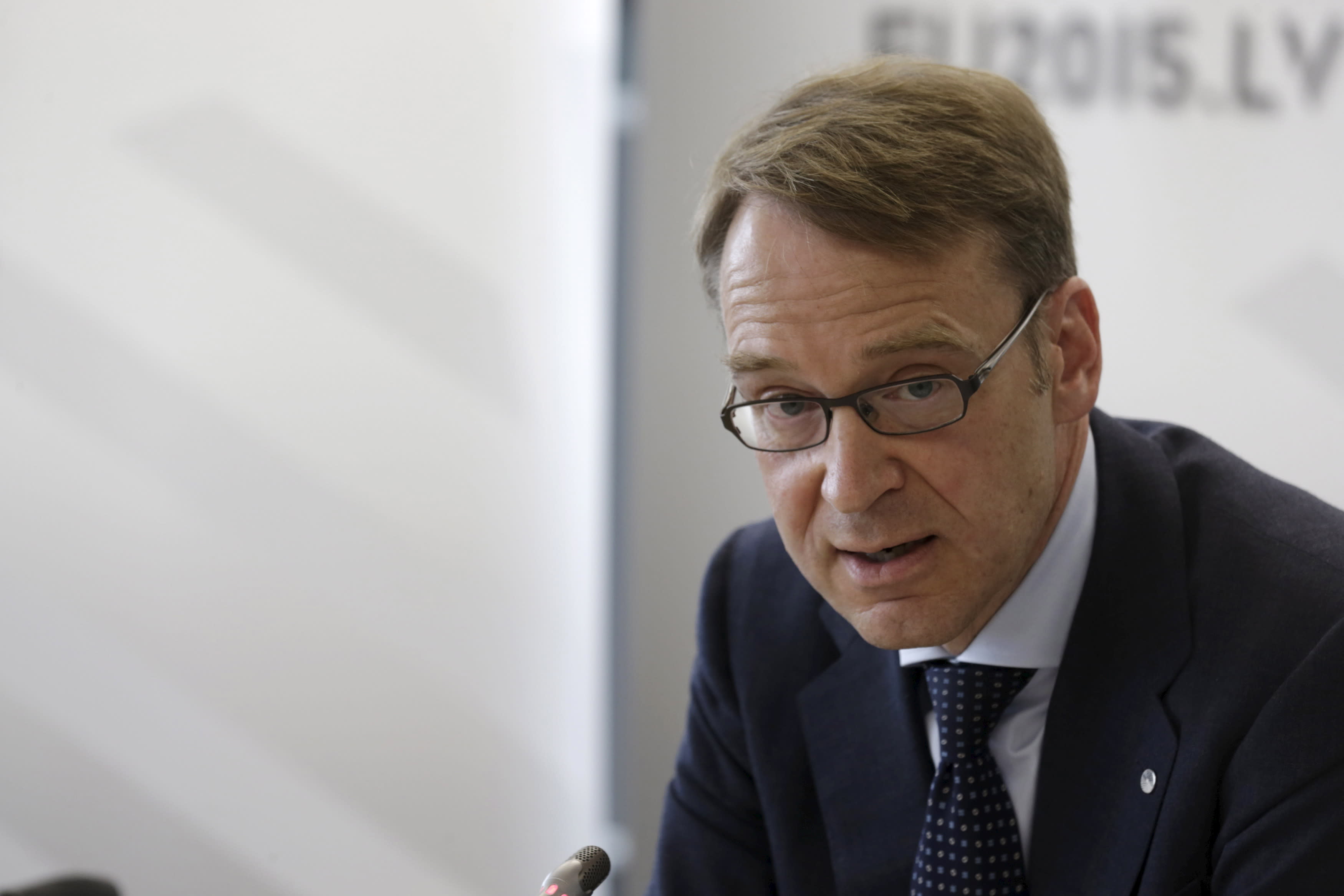LONDON – The European Central Bank may adjust its coronavirus-related stimulus program, Germany’s central bank governor told CNBC on Wednesday, with officials concerned about the recent increases in bond yields.
ECB members talked about how the rise in euro area government bond yields at the end of February is “undesirable and must be tackled” – highlighting concerns that the costs of borrowing for European governments may rise and risk the region’s economic recovery.
The ECB tried to contain borrowing costs after the pandemic by implementing a government bond purchase program, known as PEPP. But recent moves in the bond market could undermine these efforts and lead to more actions by the Frankfurt-based institution.
“We have ways to react to that,” said Jens Weidmann, the Bundesbank governor, CNBC’s Annette Weisbach on Wednesday, regarding the increase in bond yields.
“PEPP comes with flexibility and we can use that flexibility to react to such a situation,” he added.
Since it was first announced in March 2020, the ECB’s Pandemic Emergency Purchase Program has been extended in both duration and quantity. Currently, it is set to last until March 2022, totaling 1.85 trillion euros (US $ 2.23 trillion).
However, the data shows that the ECB’s debt purchases have declined in recent weeks. Although the central bank explained the drop in larger redemptions, analysts question the reasons for the drop in net purchases.
When asked if the ECB could step up purchases again to deal with higher borrowing costs, Weidmann said: “Of course this is an element that is on the table, to use the flexibility we have in implementing the PEPP.”
“But, again, the first step is to analyze the root causes and also see what effect we have on our ultimate goal, which is price stability,” he added.
The next meeting of the ECB is scheduled for 11 March.
President of the German Bundesbank, Jens Weidmann.
Ints Kalnins | Reuters
Risks of government debt purchases
Weidmann has traditionally been on the aggressive side of monetary policy, advocating less central bank intervention. At a news conference on Wednesday, Weidmann recalled the risks of large purchases of government debt.
“These purchases, however, are also associated with risks, mainly because they can blur the line between monetary and fiscal policy,” he said.
“The key issue for me here is that monetary policy must maintain a sufficient distance from government monetary financing. This includes ensuring that incentives for sound public finances are maintained,” he added.
In this context, ECB officials have suggested that they may not achieve the full value of government bond purchases. Speaking in December, ECB President Christine Lagarde said that “the envelope does not have to be used to the full.”
Future stimulus decisions are likely to depend on the evolution of the pandemic as well as price dynamics. The ECB’s policy mandate is to keep inflation “close to, but below 2%” in the medium term. January data showed that inflation reached its highest level since the start of the public health emergency, at 0.9%.
In addition to the pandemic, the ECB is also analyzing climate risks. The central bank is evaluating how to be “effective in the fight against climate change” and this could result in a change in some of its policies. However, recent reports have suggested that this may disappoint climate change advocates by buying only bonds from so-called greener assets.
German debt rule
In their country, politicians are divided over the future of German finance, with some questioning whether the debt brake rule should be reformed. This policy was introduced about a decade ago and limits the German government to taking on new debt.
However, some politicians argue that, to boost post-pandemic economic recovery, Berlin will need more flexibility to spend more.
At the news conference, Weidmann said: “After the pandemic, however, it will be a matter of restoring public finances, as Germany will face new fiscal challenges in the long run.”
He cited pensions, health, climate protection and education as important expenditures for the German government.
However, Weidmann does not believe that fiscal consolidation should happen overnight, but rather a process that spreads “appropriately for the economic recovery”.
However, he asked all European countries, not just Germany, to restore their public finances.
“But all member states of the monetary union, not just Germany, will need to put their budgets in order after the crisis. In the euro area, it is particularly – in some cases – very high debt ratios that must be reliably reduced,” he said. he.
